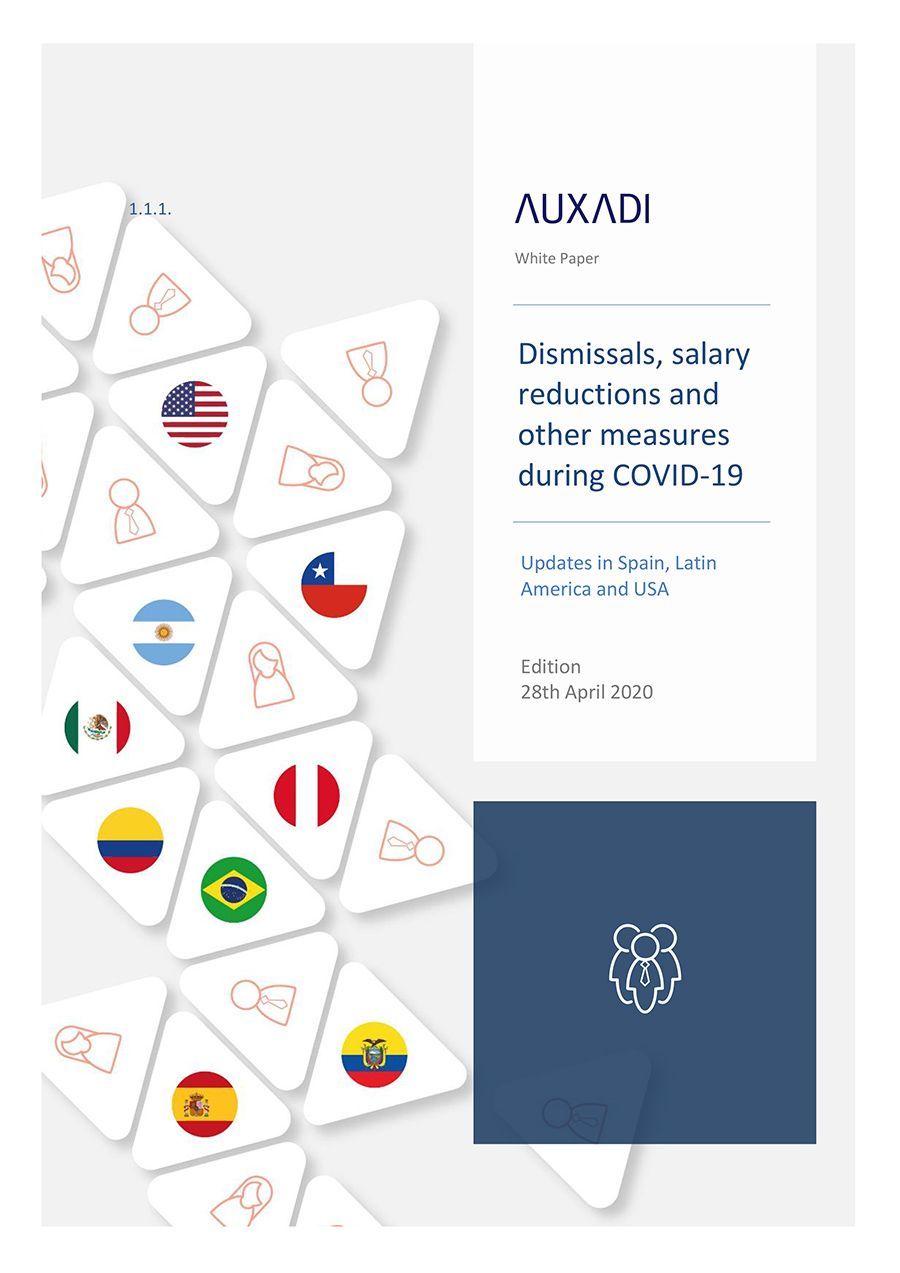The crisis caused by COVID-19 is forcing governments to enter into motion updates on tax and labour issues to try to contain the economic consequences of this situation. Spain, because of the virulence of this disease, has been active regards new legislation. And with Royal Decree Law 18/2020 of May 12, it has taken a new step forward, with special mention of the labor aspect and the Temporary Employment Dismissal Processes (known as ERTEs).
This Royal Decree Law stablishes the need to return to work and the progressive reactivation of the economy by applying protection mechanisms to de-escalation regards the workforce. The social agents and the Government have set out in their agreement the response so that companies can adopt the necessary measures for the protection of employment in the face of the “new normality”.
As the main novelty of this text, those companies and entities that have a temporary employment regulation file based on article 22 of Royal Decree-Law 8/2020, of 17 March, and are affected by the causes referred to in that precept that prevent the resumption of their activity, will continue in a situation of total force majeure derived from COVID-19, for the duration of the same and in no case beyond 30 June 2020. Therefore, the deadline of 30 June is established for the TEREs due to force majeure adopted by the companies concerned that cannot restart the activity, even though the state of alert has ended.
These companies and entities must proceed to reincorporate the workers affected by temporary employment regulation measures, to the extent necessary for the development of their activity, giving priority to adjustments in terms of reduction of working hours. The State Public Employment Service must be notified of any changes that occur at the end of the application of the measure with respect to all or some of the persons affected, either in the number of these or in the percentage of part-time activity in their individual working day, when the relaxation of the restrictive measures allows for the effective return to work.
Companies that have been reincorporating workers, either totally or partially, must notify the State Public Employment Service of any changes in the data contained in the ERTE application within 15 days of the date on which the changes take effect.
With respect to temporary layoffs due to economic, technical, organizational or production causes negotiations may be initiated even if the ERTE remains in force due to force majeure and, if so, once the ERTE of force majeure ends, the effects of the ERTE due to these causes may be granted as of the date of termination of the previous one.
The measures in the field of unemployment protection that were contemplated in Royal Decree Law 8/2020 of 17 March (and which referred to the extension of unemployment protection to all workers affected by an ERTE process derived from COVID-19 regardless of whether the requirements for access to the benefit were met) will be in force until 30 June 2020.
An important update is included on the subject of exemptions from Social Security contributions for those companies that are in a situation of ERTE due to force majeure and that are applying the exemption from contributions contemplated in Royal Decree Law 8/2020. For the contributions corresponding to the months of May and June the exoneration of quotas will work in the following way:
- Companies affected by a temporary employment regulation file derived from force majeure that cannot restart their activity:
- Less than 50 workers: 100 % of the quotas.
- 50 workers or more: 75 % of the quotas.
- Companies that can restart their activity, that were affected by a temporary employment regulation file derived from force majeure and that incorporate workers into the activity. The exemption will affect each person reincorporated:
- Less than 50 workers: for the May quotas the exemption will be 85 % and, for the June quotas, 70 %.
- 50 workers or more: for the May quotas the exoneration will be 60 % and, for the June quotas, 45 %.
- Companies that can restart their activity and start it again, that were affected by a temporary employment regulation file derived from force majeure and that keep their staff in partial suspension. The exoneration will affect each person who maintains the suspension:
- Less than 50 workers: for the May quotas the exoneration will be 60 % and, for the June quotas, 45 %.
- 50 workers or more: for the May quotas the exoneration will be 45 % and, for the June quotas, 30 %.
In order for the exoneration to be applicable, this communication shall be made, for each contribution account code, by means of a responsible declaration that must be presented, before the calculation of the corresponding contribution settlement is requested, through the Electronic Data Remission System in the area of Social Insurance (RED System), regulated in Order ESS/484/2013, of 26 March.
The exemptions in the contribution referred to in this article shall not have effect for workers, the period in which they are applied being considered as effectively contributing for all purposes, without the provisions of article 20 of the rewritten text of the General Social Security Act being applicable.
As the last precept included in the new Royal Decree, the limit for the distribution of dividends in the company is established. In this regard, companies and entities with their tax domicile in countries or territories classified as tax havens under current regulations will not be eligible for temporary layoffs. In addition, they may not distribute dividends for the tax year in which these temporary layoffs are applied, unless they previously pay the amount corresponding to the exemption applied to social security contributions.
The Coronavirus crisis is causing businesses to face huge challenges and, in this context, reliable and up-to-date information is essential. At AUXADI, we are experts in providing accounts, tax compliance and international payroll management to our clients. If you would like us to expand on the above information, please do not hesitate in getting in touch with us.
All information contained in this publication is up to date on 2020. This content has been prepared for general guidance on matters of interest only, and does not constitute professional advice. You should not act upon the information contained in this chart without obtaining specific professional advice. No representation or warranty (express or implied) is given as to the accuracy or completeness of the information contained in this content, and, to the extent permitted by law, AUXADI does not accept or assume any liability, responsibility or duty of care for any consequences of you or anyone else acting, or refraining to act, in reliance on the information contained in this chart or for any decision based on it.





